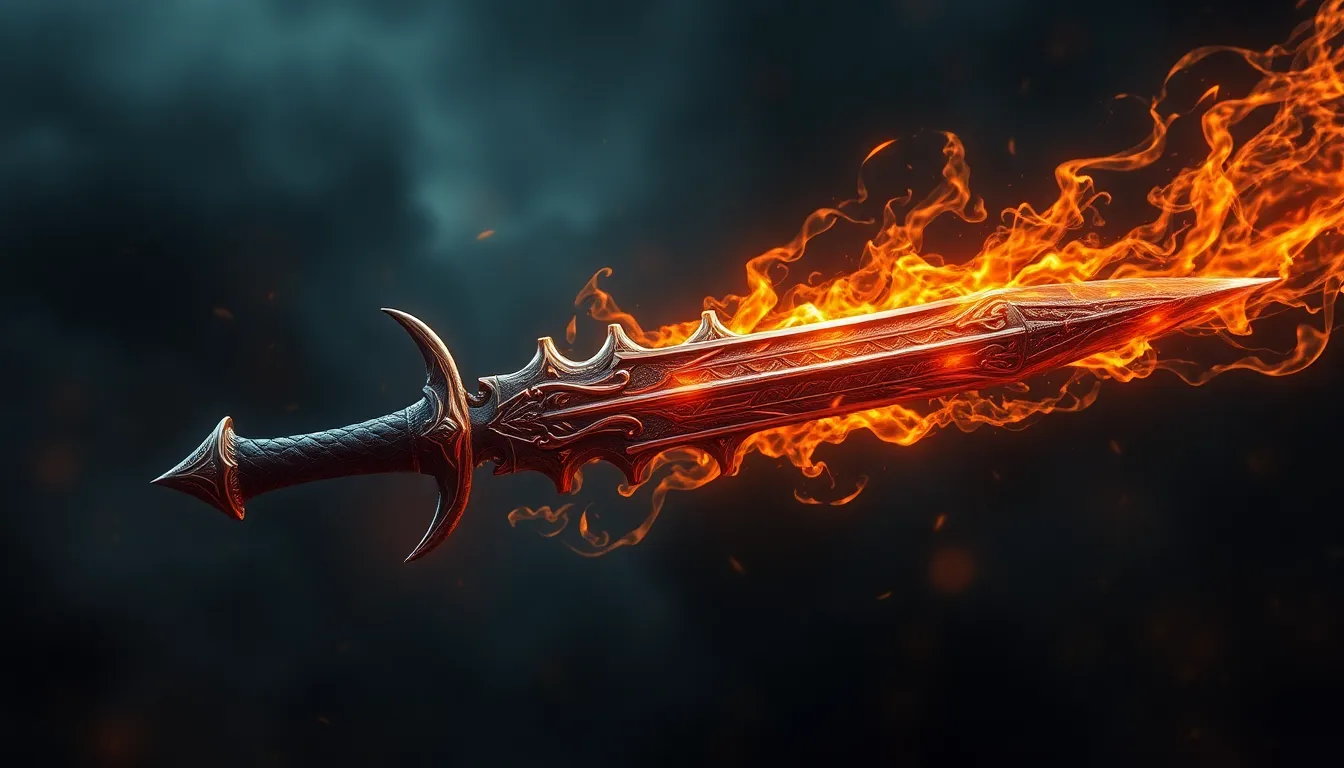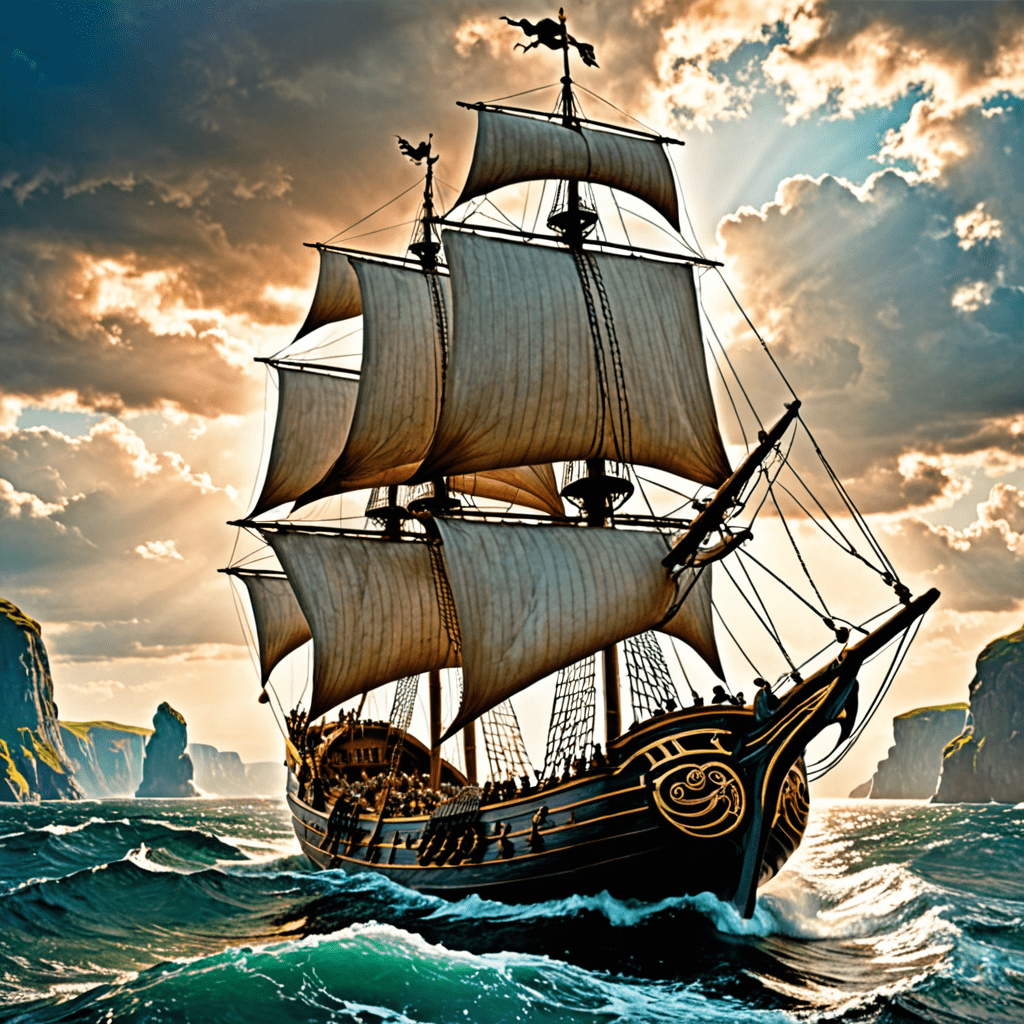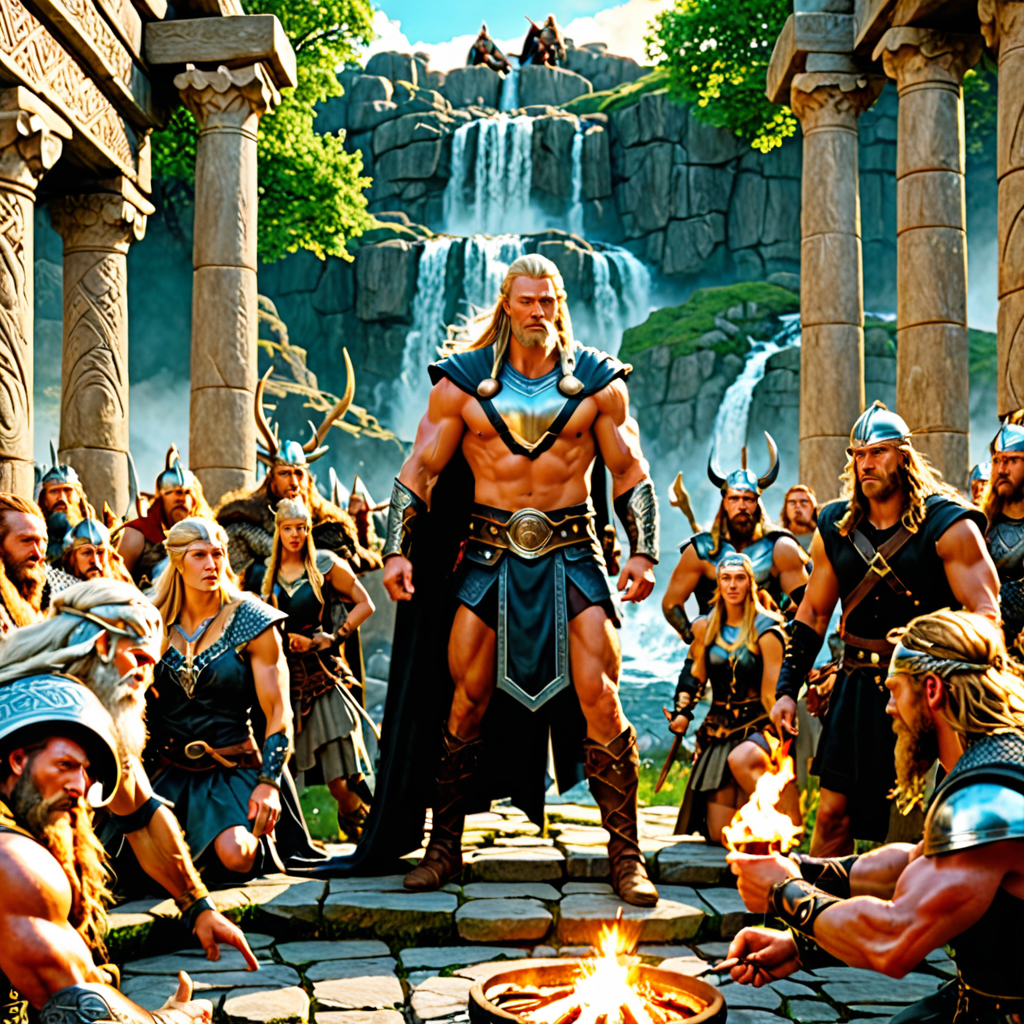The Legendary Legacy: How Mythological Weapons Influenced Cultures
I. Introduction
Mythological weapons are not merely tools of combat; they serve as profound symbols that encompass the narratives, values, and beliefs of ancient cultures. These weapons often possess extraordinary powers and are typically wielded by gods, heroes, or legendary figures. They play a crucial role in the myths and legends that define the cultural heritage of societies across the globe.
This article aims to explore the significance of mythological weapons in various cultures, their origins, their symbolic meanings, and their influence on contemporary society. By delving into these aspects, we can better appreciate how these legendary armaments have shaped human history and identity.
II. The Origins of Mythological Weapons
The origins of mythological weapons can be traced back to ancient societies where warfare was a central aspect of life. Weapons were not only practical tools but also objects of reverence and fear, infused with cultural significance.
Storytelling and oral traditions played a vital role in the formation of weapon lore. As tales were passed down through generations, the attributes and legends surrounding these weapons evolved, often reflecting the values of the society that revered them.
Some notable examples of early mythological weapons include:
- Excalibur from Arthurian legend, a symbol of rightful sovereignty.
- Mjölnir, Thor’s hammer, representing protection and power in Norse mythology.
- The Bow of Artemis, embodying independence and strength in Greek myth.
- The Trident of Poseidon, signifying dominion over the oceans.
III. Iconic Mythological Weapons and Their Stories
Several mythological weapons have become iconic, each with its own rich narrative that underscores its significance:
A. Excalibur: The Sword of King Arthur
Excalibur, the legendary sword of King Arthur, is often associated with the rightful sovereignty of Britain. According to legend, Arthur received the sword from the Lady of the Lake. Its magical properties symbolize divine right and leadership.
B. Mjölnir: Thor’s Hammer in Norse Mythology
Mjölnir, the hammer of Thor, is a powerful weapon that can level mountains and summon storms. It symbolizes protection and the defense of Asgard, the realm of the gods. Thor’s use of Mjölnir emphasizes themes of strength and resilience.
C. The Bow of Artemis: Symbol of Strength and Independence
The Bow of Artemis, wielded by the goddess of the hunt, represents independence, skill, and the connection to nature. Artemis, often depicted as a protector of women and wildlife, uses her bow as a tool for both hunting and defense.
D. The Trident of Poseidon: Power Over the Seas
Poseidon’s trident is not just a weapon but a symbol of his control over the oceans. With it, he could create storms, earthquakes, and tidal waves, asserting his dominance in Greek mythology.
IV. Cultural Symbolism and Meaning Behind Mythological Weapons
Mythological weapons often serve as potent symbols of power and authority. They are not just instruments of war; they embody the values and beliefs of the cultures that created them.
A. Weapons as Symbols of Power and Authority
These weapons frequently signify the legitimacy of rulers or heroes. For instance, Excalibur signifies King Arthur’s rightful claim to the throne, while Mjölnir represents Thor’s divine authority.
B. The Connection Between Weapons and Deities
Many mythological weapons are closely associated with deities. For example, the Bow of Artemis connects the goddess to her role as protector and huntress, while Poseidon’s trident links him to the sea and its mysteries.
C. The Use of Weapons in Rituals and Sacrifices
In various cultures, weapons have been used in rituals to symbolize sacrifice and devotion. They often represent the fine line between destruction and protection.
V. Mythological Weapons in Art and Literature
The representation of mythological weapons extends beyond oral tradition into art and literature, reflecting their cultural significance.
A. Representation in Ancient Texts and Epics
Many ancient texts, such as the Epic of Gilgamesh or the Iliad, feature mythical weapons prominently, showcasing their importance in the narratives and the cultural contexts in which they were written.
B. Influence on Modern Literature, Films, and Video Games
Today, mythological weapons continue to inspire modern storytelling, appearing in films, literature, and video games. Examples include:
- Excalibur in movies like Excalibur and King Arthur.
- Mjölnir in the Marvel Cinematic Universe.
- The Bow of Artemis in various fantasy novels and films.
C. Artistic Depictions and Their Cultural Significance
Artistic representations of these weapons often highlight their symbolic meanings and cultural contexts. From ancient pottery to modern graphic novels, these depictions serve as a bridge between the past and present.
VI. The Psychological Impact of Mythological Weapons
Mythological weapons evoke a sense of power and heroism that resonates on a psychological level, impacting how individuals and societies perceive strength and identity.
A. The Allure of Power and Heroism
The imagery of wielding a legendary weapon often embodies the aspirations of heroism and power, appealing to the human desire for greatness.
B. Weapons as Archetypes in Collective Consciousness
These weapons serve as archetypes, representing universal themes of conflict, resolution, and moral integrity that transcend individual cultures.
C. The Role of Mythological Weapons in Shaping Identity and Values
In many cultures, the narratives surrounding these weapons contribute to collective identity, reinforcing values such as bravery, justice, and protection.
VII. The Evolution of Mythological Weapons in Contemporary Culture
The portrayal of mythological weapons has evolved significantly in contemporary culture, reflecting changes in societal values and technological advancements.
A. Reinterpretations in Modern Media
Modern media often reinterprets these weapons, providing new contexts and meanings. For example, Mjölnir is portrayed in various ways, from a symbol of brute strength to a representation of worthiness.
B. The Resurgence of Interest in Ancient Myths
There has been a resurgence of interest in ancient myths, with many contemporary works revisiting these stories and their iconic weapons, thus keeping the legends alive.
C. The Impact of Technology on the Portrayal of Mythological Weapons
Advancements in technology have transformed how mythological weapons are depicted in visual media, making them more dynamic and visually stunning than ever before.
VIII. Case Studies: The Influence of Mythological Weapons on Societal Values
Examining specific case studies reveals how mythological weapons have influenced societal values and norms over time.
A. The Legacy of Excalibur in Leadership and Governance
Excalibur’s association with rightful leadership has influenced political discourse about authority and governance, serving as a metaphor for just rule.
B. Mjölnir’s Representation of Resilience and Protection
In Norse culture, Mjölnir has become a symbol of resilience, inspiring individuals to protect their communities and stand against adversity.
C. The Bow of Artemis and the Feminist Movement
The Bow of Artemis has been embraced as a symbol of female empowerment and independence, resonating with contemporary feminist movements.
IX. Cross-Cultural Comparisons of Mythological



